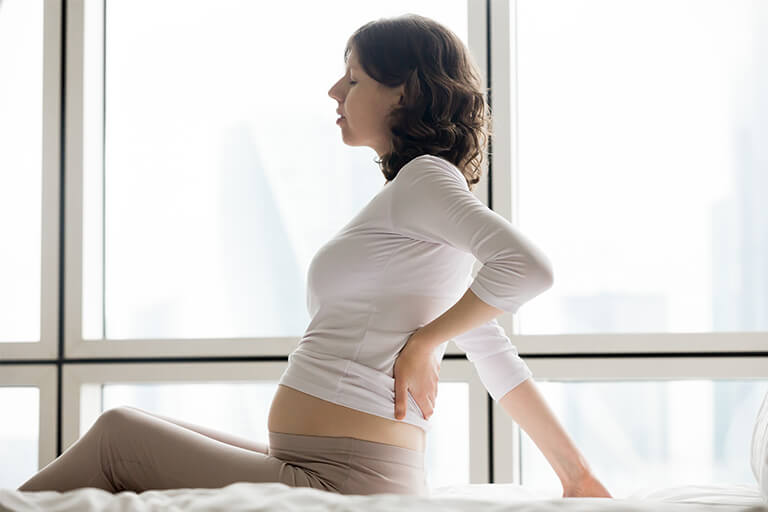Pregnancy is a miraculous journey filled with anticipation and joy, but it also comes with its fair share of physical discomforts. As your body undergoes remarkable changes to accommodate the growing life within it, it is common to experience various aches and pains along the way. In this article, we’ll explore the body aches you can expect during pregnancy and offer tips for finding relief.
-
Back Pain:
Back pain is one of the most prevalent complaints among pregnant women, especially in the later stages of pregnancy. As your baby grows, the added weight can strain your back muscles and shift your center of gravity, leading to discomfort. Hormonal changes also contribute to ligament relaxation, further exacerbating back pain. To alleviate backaches, practice good posture, wear supportive footwear, use a pregnancy pillow for sleeping, and consider gentle exercises like prenatal yoga or swimming to strengthen your back muscles.
-
Pelvic Pain:
Pelvic pain, also known as pelvic girdle pain (PGP) or symphysis pubis dysfunction (SPD), is characterized by discomfort in the pelvic region, particularly around the pubic bone and sacroiliac joints. This pain often intensifies when walking, climbing stairs, or changing positions. PGP occurs due to increased pelvic joint mobility and the pressure exerted by the growing uterus. To manage pelvic pain, avoid activities that exacerbate discomfort, use supportive maternity belts or pelvic support garments, and consider physiotherapy for targeted exercises and pain relief techniques.
-
Round Ligament Pain:
Round ligament pain manifests as sharp or stabbing sensations on the sides of the abdomen, particularly during sudden movements or changes in position. This pain type’ occurs as the round ligaments, which support the uterus, stretch and accommodate the growing baby. To ease round ligament pain, practice gentle stretches, avoid sudden movements, use supportive maternity clothing, and apply heat or cold packs to the affected area as needed.
-
Leg Cramps:
Leg cramps, characterized by sudden, painful muscle contractions, are common during pregnancy, especially in the second and third trimesters. The exact cause of leg cramps is unclear, but factors such as increased pressure on leg muscles, changes in circulation, and mineral imbalances may contribute to their occurrence. To prevent leg cramps, stay hydrated, maintain a balanced diet rich in calcium and magnesium, stretch your calf muscles before bed, and elevate your legs when resting.
-
Headaches:
Headaches are another common discomfort experienced during pregnancy, often attributed to hormonal fluctuations, stress, fatigue, dehydration, or changes in blood circulation. While over-the-counter pain relievers are generally not recommended during pregnancy, you can try natural remedies such as applying cold compresses, practicing relaxation techniques, staying hydrated, and getting adequate rest to alleviate headaches.
Conclusion
Pregnancy is a transformative journey that brings about remarkable changes in your body, along with a host of associated aches and pains. While these discomforts are often a normal part of the pregnancy experience, it’s essential to prioritize self-care and seek relief when needed.
By practicing good posture, staying active with prenatal exercises, using supportive aids, and incorporating relaxation techniques, you can effectively manage pregnancy body aches and focus on nurturing yourself and your growing baby. Remember to consult your healthcare provider if you experience severe or persistent pain to ensure optimal care and well-being throughout your pregnancy journey.




